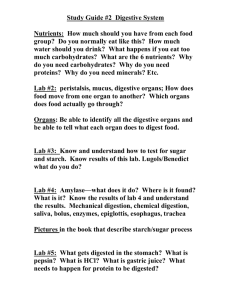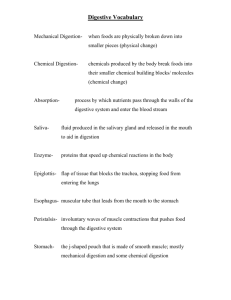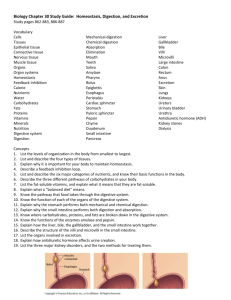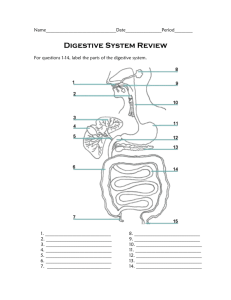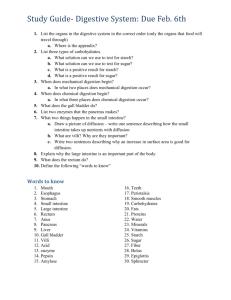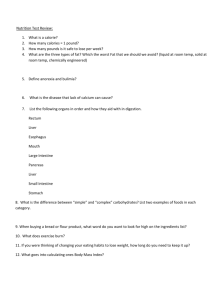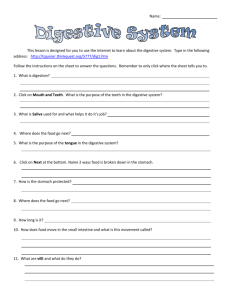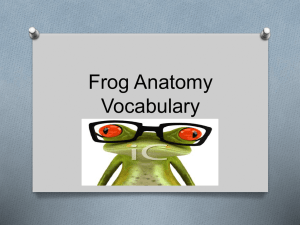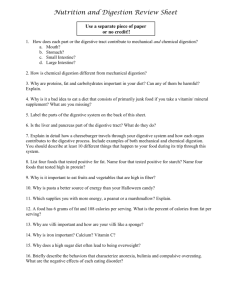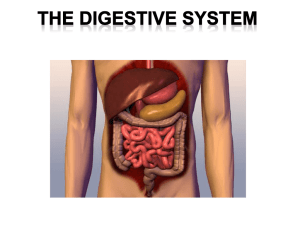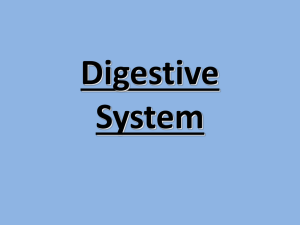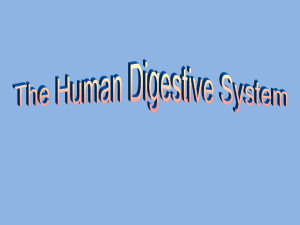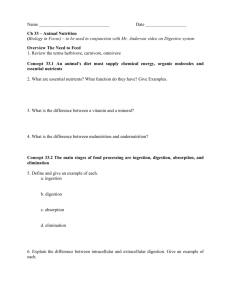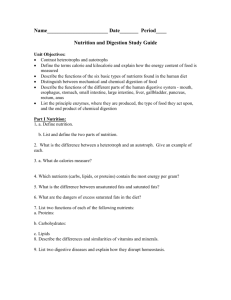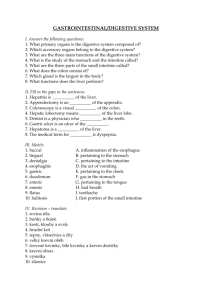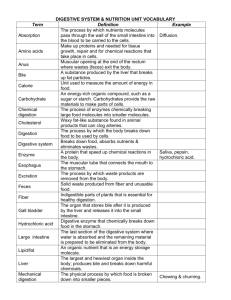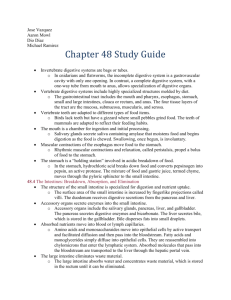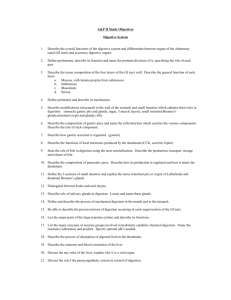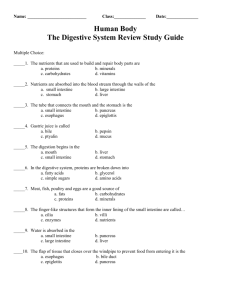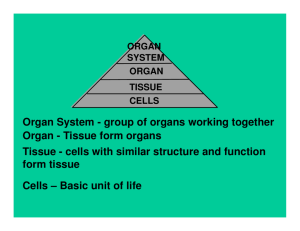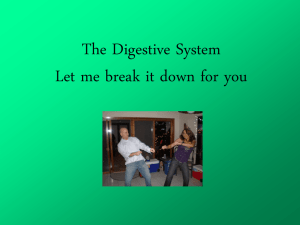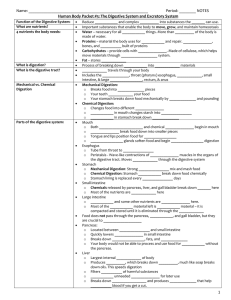Digestive System Review - Science
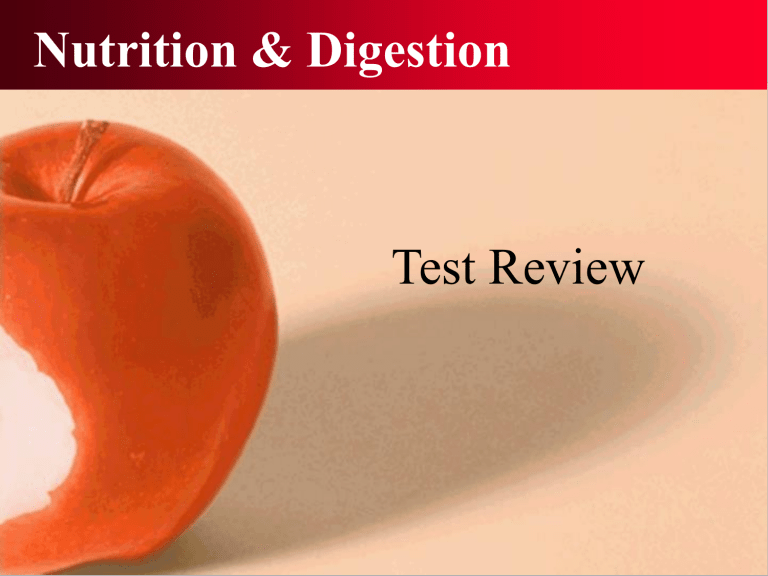
Nutrition & Digestion
Test Review
Nutrients
Substances needed for:
Cell repair
Cell growth
Energy
Obtained from the food we eat
Nutrients
Proteins
Carbohydrates
Fats
Vitamins
Minerals
Water
Protein
Replacement of cells
Growth
Large molecules
Smaller molecules called
Amino Acids
Found in meats, eggs, beans
Carbohydrates
Primary energy source
Molecules of C, H, O
Sugars ~ simple carbohydrates
Starches ~ complex carbohydrates
Fiber
Not digested; provides bulk
Fats
Provide energy / stores energy
Absorb vitamins
Make up cell membranes
Vitamins
Organic (contain carbon)
Growth
Regulate body functions
Prevent disease
No food has all vitamins
Water soluble
Fat soluble
Stored in body
Minerals
Inorganic (no carbon)
Found on the periodic table
Control chemical reactions
Build cells
Conduct nerve impulses
Carry oxygen
Water
Nutrients carried in water
Used in chemical reactions
Digestion
Process the breaks down food into small molecules that can be used by the body
Mechanical ~ chewing, mixing, churning
Chemical ~ chemicals break down food
Digestive system
Digestive tract
Alimentary canal
Organs used in digestion
Digestive system
Mouth
Esophagus
Stomach
Small intestine
Large intestine
Rectum
Anus
Digestive system
Accessory organs ~ food does not pass through
Liver
Gall bladder
Pancreas
Mouth
Teeth
Mechanical digestion ~ chewing
Chemical digestion ~ amylase in saliva
Esophagus
Peristalsis ~ muscular action that moves food
Lined with mucus
Epiglottis prevent food from going into trachea
Stomach
Muscular bag
Lined with folds
Mechanical & chemical digestion
Enzymes (help speed up chemical reactions) & digestive juices
Chyme
Stomach
Small intestine
Most digestion occurs here
Lined with villi
Projections that increase surface area
Small intestine
Large intestine
Colon
Absorbs water
Maintains homeostasis ~ steady state
Forms feces
Rectum ~ stores feces
Anus ~ strong round muscles (sphincter)
Large intestine
Accessory organs
Produce and store digestive chemicals
Food does not pass through these
Liver
Makes bile
Liver
Gall bladder
Muscular sac attached to the liver
Stores bile.
Gall bladder
Pancreas
Makes enzymes
Pancreas
